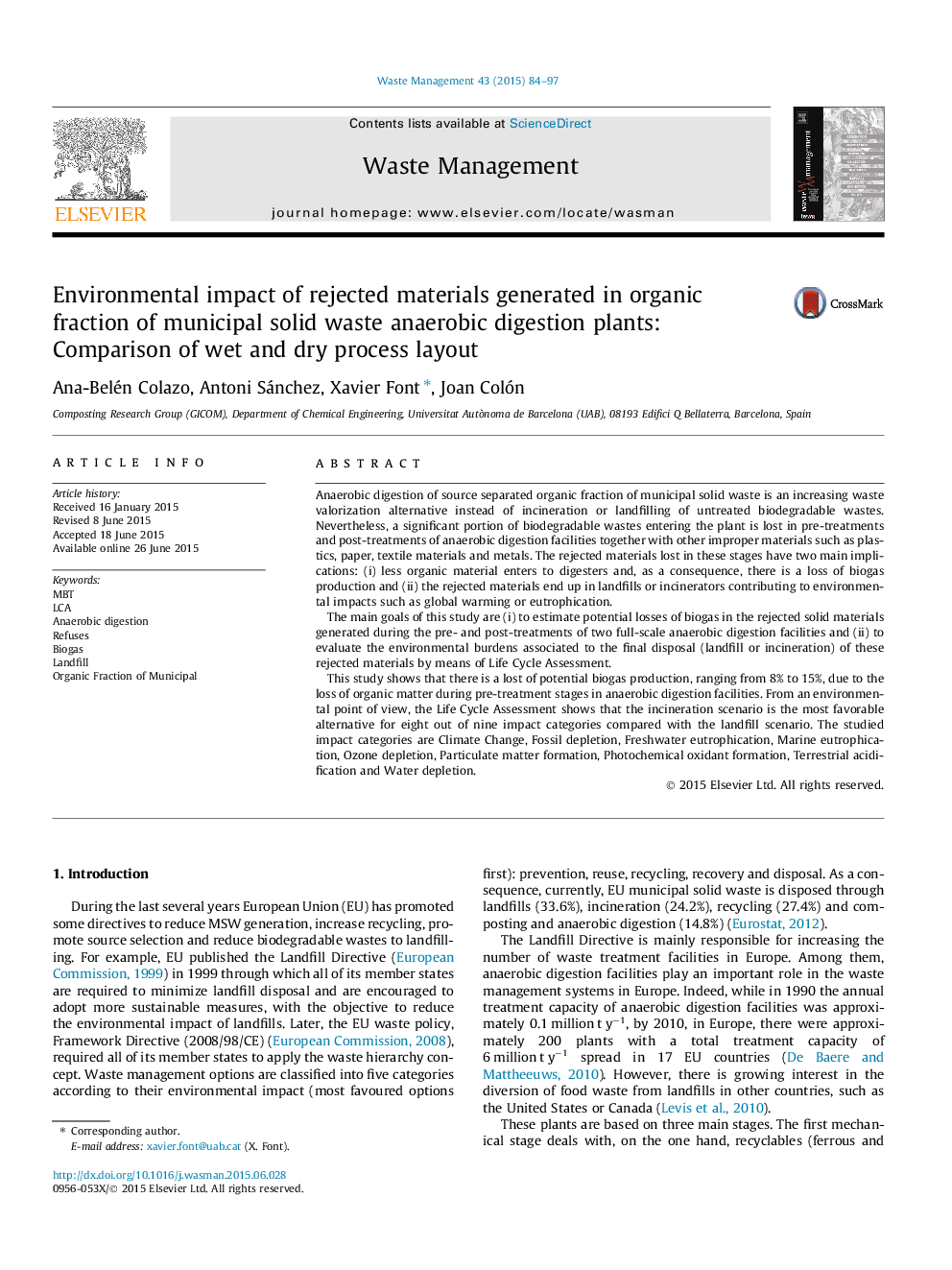| کد مقاله | کد نشریه | سال انتشار | مقاله انگلیسی | نسخه تمام متن |
|---|---|---|---|---|
| 6353900 | 1622642 | 2015 | 14 صفحه PDF | دانلود رایگان |
- Dry and wet anaerobic digestion plants are evaluated in terms of their reject streams.
- Organic matter losses during the pre-treatment stages reduce biogas production.
- Eight percent of potential biogas is lost in a dry anaerobic digestion facility.
- Seventeen percent of potential biogas is lost in a wet anaerobic digestion facility.
- LCA shows that incineration of rejected materials is favoured in front of landfilling.
Anaerobic digestion of source separated organic fraction of municipal solid waste is an increasing waste valorization alternative instead of incineration or landfilling of untreated biodegradable wastes. Nevertheless, a significant portion of biodegradable wastes entering the plant is lost in pre-treatments and post-treatments of anaerobic digestion facilities together with other improper materials such as plastics, paper, textile materials and metals. The rejected materials lost in these stages have two main implications: (i) less organic material enters to digesters and, as a consequence, there is a loss of biogas production and (ii) the rejected materials end up in landfills or incinerators contributing to environmental impacts such as global warming or eutrophication.The main goals of this study are (i) to estimate potential losses of biogas in the rejected solid materials generated during the pre- and post-treatments of two full-scale anaerobic digestion facilities and (ii) to evaluate the environmental burdens associated to the final disposal (landfill or incineration) of these rejected materials by means of Life Cycle Assessment.This study shows that there is a lost of potential biogas production, ranging from 8% to 15%, due to the loss of organic matter during pre-treatment stages in anaerobic digestion facilities. From an environmental point of view, the Life Cycle Assessment shows that the incineration scenario is the most favorable alternative for eight out of nine impact categories compared with the landfill scenario. The studied impact categories are Climate Change, Fossil depletion, Freshwater eutrophication, Marine eutrophication, Ozone depletion, Particulate matter formation, Photochemical oxidant formation, Terrestrial acidification and Water depletion.
Journal: Waste Management - Volume 43, September 2015, Pages 84-97
